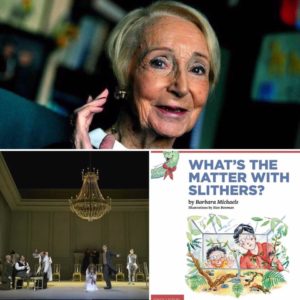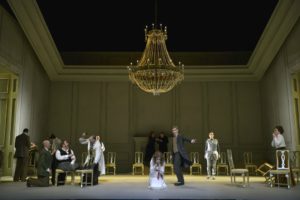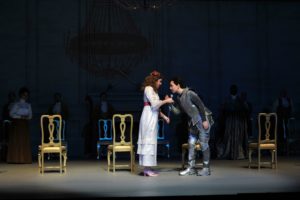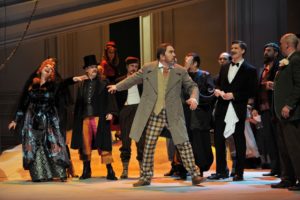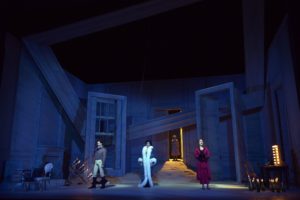In this article we interview a range of arts professionals to share good practice in the areas of Access, Inclusion and Diversity.
Meredydd Barker
Hi can you please tell us a little about yourself and your practice?
I’m a playwright, artistic director of Narberth Youth Theatre and the west Wales rep for Youth Arts Network Cymru – YANC
Which area/s of good practice in the arts relating to the themes of access, inclusion and diversity would you like to highlight?
It begins with the young. Youth Arts Network Cymru – YANC – is doing tremendous work in this regard in the hope that as the young people involved grow older and, perhaps, make a career in the arts, best practice can spread through the industry . Then, one day, access, inclusion and diversity will not be issues that have to be continually addressed. They won’t be issues at all.
Helena Davies
Hi can you please tell us a little about yourself and your practice?
Hi, I’m Helena Davies, and I’m a linguist with a background in Technical Translation and English as a Foreign Language. I have a BA in Italian and Spanish, an MA in Literary Translation and I am currently preparing for my Welsh Mynediad exam in June. I moved to Cardiff from London last year, and over the last couple of months, I have been training to become a Captioner, working on producing film and TV subtitles for the deaf and hard of hearing. I recently received audio description training from Dr Louise Fryer, BBC Radio 3 Presenter and Audio Describer, and Anne Hornsby of Mind’s Eye, both pioneers in UK audio description. I am now looking to establish a career in Captioning and Audio Description. I dance samba de gafieira and samba funkeado, and am passionate about media and arts accessibility.
Which area/s of good practice in the arts relating to the themes of access, inclusion and diversity would you like to highlight?
With a strong interest in dance and accessibility, I was delighted to be invited by Carole Blade, Creative Producer for Dance in Wales, to attend a three-day audio description training course based on the Family Dance Festival at Chapter Arts Centre. Over an intense three days, we learnt how best to audio describe dance, which is considered to be one of the hardest mediums to describe. We all concurred that “Drifter” by Jukebox Collective, featuring the talented Kate Morris, was by far the trickiest to describe. The Family Dance Festival is presented by Bombastic and Coreo Cymru, and features four short audio described dance performances in Welsh and English, with accompanying touch tours. It is a great initiative and exciting to see dance being opened up to all. The Family Dance Festival is running from 24 March to 14 April 2018
Elise Davison
Hi can you please tell us a little about yourself and your practice?
I’m the co founder and Artistic Director of Taking Flight Theatre Company, the company I co founded with Beth House in 2008. Before this I was an actress for 10 years, a teacher, a presenter and a facilitator. Taking Flight is an inclusive company originally set up to break down the barriers, or perceived barriers to participation in the arts. We have been integrating access tools into our work for a long time now and act as creative access consultant for many other theatres companies. We have produced over 17 tours of Wales, run many residencies and trained many facilitators in our 10 years. We have recently become a disability led organisation, as over half of our Board of Directors identify as disabled, and this is really important to us.
Currently we are touring our inclusive family show You’ve got Dragons which gently raised the issues of Mental Wellbeing in young people and accompany this with free resilience building ‘Dragon Taming’ workshops which have been created in collaboration with clinical psychologists. This is touring the whole of the UK and is a really exciting development for the company. It’s been great to find so many theatres in England keen to programme inclusive work. We are a company that seeks to nurture the next generation of theatre makers, we have taken risks with casting, with our creative access, with our marketing materials. As creatives we take risks with everything else we do so we need to be prepared to do so with regards to diversity and access. It’s great to see some of our former employees ‘take flight’ and set up on their own e.g. Sami Thorpe and Chloe Clarke of Elbow Room and we continue to wish them every success on their new adventures. TF offer support and advice when we can and do everything within our power to ensure we make our work and our process as accessible as possible. We make mistakes, we often get it wrong and we continue to learn and to develop our work and we love to collaborate…many heads are better than one!
Which area/s of good practice in the arts relating to the themes of access, inclusion and diversity would you like to highlight?
Fio – Abdul is doing so much to raise the issues around the lack of diversity in Wales and is producing some cracking work. We hope to work more closely with Fio in the future.
Mess up the Mess – a ‘quietly inclusive’ company that really nurture the young people they work with creating strong, independent theatre makers with excellent ideas about access. Can’t wait to work with them again – we continue to learn from them.
Hijinx Theatre – producing excellent touring work and taking the international scene by storm, this company is changing the attitude towards in inclusive work featuring learning disabled actors. Meet Fred continues to tour across the world and the next show The Flop is sure to be another success. Additionally the academies which are now running pan Wales are a real example of the kind of training that we need to have in place to nurture the next generation of learning disabled performers. We would love to have the capacity to run an ongoing training forum for D/deaf/HOH and disabled performers and are in conversations with a number of organisations about this.
Ramps on the Moon – an amazing initiative in England which is placing disabled performers and accessible productions on main stages and in producing houses across the UK.
Stopgap Dance – they have been so generous to us over the last year, giving us advice and putting us in touch with like minded organisations and really are the leading lights in inclusive dance. Love their work. www.stopgapdance.com
WMC – Jenny Sturt is making massive changes and embracing access and inclusion in a huge way. Her drive and passions is infectious!
Yvonne Murphy – has produced some excellent all female work and is enthusiastic and determined to challenge any inequality which may lead to people being excluded from the arts.
Bath Spa and The Atrium – I’ve worked with both these organisations as a creative access consultant and have worked to integrate a BSL interpreter ( the wonderful Julie Doyle and Tony Evans) into their shows and to integrate audio description. It’s great that the Universities that are training the next generation of actors feel so strongly about making accessible work. The students have loved the process and have been inspired to think more creatively about access as a result. Long may it continue!
Creu Cymru and hynt – Still doing fab work with venues via the hynt card scheme. It’s also been great to host our 4th access symposium Wales – a diverse nation? at Theatr Clywd with Creu Cymru in Feb, such a great bunch of people attended and so many ideas were generated and will hopefully start to be put into play. As a result we are hosting free access meeting – practical access solutions at WMC once a month and the first one sold out in 12hrs! So there is obviously a want to be more diverse and a desire to be part of the conversation, we all just need to be a tiny bit braver and not worry so much about getting it wrong!
Ucan go! app – also needs a mention here – an app to help orientate blind or partially sighted visitors at theatres, it’s so great it would be wonderful to see more venues investing in this.
Adeola Dewis
Can you please tell us a little about yourself and your practice?
My name is Adeola and I am an artist and researcher working across visual arts and performance. My practice engages conceptual, performative and aesthetic notions on Carnival, ritual, folk and emancipatory performances.
Which area/s of good practice in the arts relating to the themes of access, inclusion and diversity would you like to highlight?
I highlight Carnival as an area that exemplifies good practice in terms of inclusion, diversity and access.
Jacob Gough
Hi can you please tell us a little about yourself and your practice?
My name is Jacob Gough, I’m Production Manager for National Theatre Wales, which in a nutshell involves the logistical planning for productions.
Which area/s of good practice in the arts relating to the themes of access, inclusion and diversity would you like to highlight?
I would like to highlight the amazing work of companies that don’t just champion but incorporate access into their shows; companies like Taking Flight, UCAN Arts, Hijinx, Llanarth Group and artists like Jonny Cotsen amongst others. Companies and artists are doing a lot more work now to provide captioning, BSL and audio-described performances, which is great to see. Access forums are a fantastic mechanism to help organisations and artists share knowledge and learning, and a lot of new technologies are being developed that help accessibility; all of which helps develop this all-important feature of the arts.
Jafar Iqbal
Hi can you please tell us a little about yourself and your practice?
I’m a freelance artist and arts critic. I’ve written for publications such as The Stage, WhatsOnStage and Wales Arts Review, as well as regional and online publications over the course of my career. I’m also a scriptwriter and storyteller.
Which area/s of good practice in the arts relating to the themes of access, inclusion and diversity would you like to highlight?
I’d like to raise awareness about Where I’m Coming From, a monthly Open Mic event hosted by writers Durre Shahwar and Hanan Issa. Currently at the Tramshed in Cardiff every month, the spoken word event is aimed predominantly at the BAME population. Going to one of these events is an enlightening experience, as its attended by people who you usually wouldn’t see at other such events. It’s become a safe space for writers to express themselves in a welcoming environment and, for many of these people, the first time they’ve ever shared their creativity to an audience. A fantastic event.
Rachel Pedley Miller
Hi can you please tell us a little about yourself and your practice?
I run Avant Cymru. At Avant we aim to be acceptable creating work with audiences and delivering projects that are accessible to many individuals. In the past we have used apps such as swipe to caption our performances and we have worked in venues which are acceptable to those with mobility issues. We work with the community into raise our awareness of the needs. We also look to highlight a range of needs especially through our continual drama Rhondda Road, which is directed by Shane Anderson. Rhondda Road will be starting again in May 2019 and we would love to have a character in the show who would want to raise further awareness of the difficulties people who have a disability have accessing the arts. As a dyslexic person living with a chronic illness, I refuse to let my conditions prevent me from trying new things and will always work with audience and cast members to make the shows as accessible as possible. To date Avant have not produced one show without BAME cast members, we have also employed LBGT cast members on various projects. This has not been something that we have shouted about as we have seen our staff as the best people for the job, the fact that they identify as disabled, LBGT, disabled or from a BAME background is for them. We just see everyone that is hired as the best person for their role and we are proud that we see diverse people as equals.
Which area/s of good practice in the arts relating to the themes of access, inclusion and diversity would you like to highlight?
I think that it is important to look at each project, Consider if it is relevant to 2018. What I mean is if there is a pre-written script is it possible to make it appealing or relevant to audiences now. Because if it isn’t then Avant are not interested in producing that show.
When we have established a compelling idea we look to hire someone who has the correct skills, energy and enthusiasm to create the work. Looking for a cast member who can ply the role with the right drive, rather than worrying if they can tick a diversity box. Seeing each individual on their own merit and supporting them to make a career in the arts, or to participate in the arts should be considered on a person by person basis and implementing various tools to make work and audience opportunities accessible to all should be considered. We always evaluate after each show, so far our audiences have been happy that they have been able to access Avants work. We need to keep evolving to have more tools in place so we are able to cater for different individuals.
Yvonne Murphy
Hi can you please tell us a little about yourself and your practice?
I run Omidaze Productions. I set it up back in 2008 specifically to use drama and theatre to shake stuff up, entertain new audiences and inspire change. We make politically grounded theatre, run workshops in schools and produce annual Summer Schools for young people which give full scholarship places to those for whom economics make the arts harder to reach. Our first production and tour (Things Beginning With M) examined how women learn from each other about everything from Motherhood to the Menopause, Miscarriages, Menstruation, Masturbation, Men, Money, Marriage, Mysogyny, Media Images and Maturity. Everthing begins with M!
I am really interested in smashing down boundaries between different art forms and exploring the difference between for example a visual art installation and set design or dance and movement/physical theatre. I love to smash the fourth wall and explore how audiences behave when you break the rules, or even have none at all. I like theatre to break beyond the confines of the designated space and like using unusual public spaces to entice and spark curiousity in those who might not otherwise enter a theatre.
I use visual artists, stand-up comedians, circus choreograhers and aerialists and movement directors to help me discover what will entice new audiences into the theatre and allow text to become relevant, accessible and visceral.
I created, directed and produced the Shakespeare Trilogy (co-productions with the Wales Millennium Centre) which consisted of two all-female productions immersive site specific productions in the WMC roof void (Richard III 2015 & Henry VI 2016) a ‘gateway’ Shakespeare production which strived to reach younger audiences and used a BAME strong and gender balanced cast.
I am deeply concerned by the inequality within our society and within the theatre industry where we tell and share our stories which help us to connect and make sense of our world and what it is to be human. I therefore strive to make work which challenges myself and the status quo and attempt to raise awareness of that deeply ingrained inequality, issues of social injustice, conflict and stuff which I believe needs to shift and change through my work.
Which area/s of good practice in the arts relating to the themes of access, inclusion and diversity would you like to highlight?
The Young Vic did some good work on how we should think and act differently as cultural organisations when recruiting. Where and how we recruit for positions at all levels is key. Recruitment processes could be so much more creative and reach people from different sectors and walks of life. They have walked the talk with the recruitment of their new Artistic Director, Kwame Kwei-Armah.
Taking Flight have taught me so much about inclusivity in theatre and I would love to see the day when they no longer need to call themselves an inclusive theatre company because EVERY theatre company should be an inclusive theatre company.
The Clore Leadership Programme gave me phenomenal training in so many areas including governance and is striving to change the face of cultural leadership within the UK and make it more equally representative. It made me realise how key governance is and if the board of an organisation is not leading the way in challenging systemic inequality then the organisation most likely won’t be either. Any board which is truly diverse and ensures that trustees step down after a set period of 5-6 years is good practice.
Kaite O’Reilly
Hi can you please tell us a little about yourself and your practice?
Hi of course, please find some information on myself below,
Kaite O’Reilly is an award winning Playwright who works both in the so-called mainstream and disability arts and culture. Awarded the Peggy Ramsay award & Ted Hughes award for new works in poetry for ‘Persians’ with National Theatre Wales (NTW). A leading figure in disability arts and culture internationally, she received three Cultural Olympiad commissions and her Unlimited commission production with NTW of ‘In Water I’m Weightless’ was part of the official festival celebrating the 2012 London olympics/Paralympic and created an important political and cultural precedent – the first production written from a disability perspective with an all Deaf and disabled cast performing on such a high profile national platform. She is currently touring ‘Richard iii redux’ – reclaiming Richard iii as a disabled icon and her 2018 Unlimited international commission ‘and suddenly I disappear – the Singapore ‘d’ monologues’ premieres in Singapore in May and comes to U.K. to tour in September. Her acclaimed collected ‘Atypical Plays for Atypical Actors’ are published by Oberon. She is patron of Disability Arts Cymru and DaDaFest and publishes widely about diversity, inclusion and disability.
Which area/s of good practice in the arts relating to the themes of access, inclusion and diversity would you like to highlight?
I think it’s about changing the whole way performance is made, how, about, and with whom, it’s the content and material as much as including innovative use of the aesthetics of access. Theatre is supposed to be the study of what it is to be human and yet it still has a very narrow perspective – we need to broaden this in the stories we tell, the protagonists we create and the theatre languages we use (integrated Sign interpretation, captioning, audio description, etc).
I have written widely about what I call ‘alternative dramaturgies informed by a Deaf and disability perspective’ when AHRC creative fellow 2003-06 and 2010-2017 when fellow at International Research Centre in Berlin. We could be far more inventive – and work, like mine, had been going on for decades but is still marginalised. We need to make this central . But not just access as add-on – we need disabled and Deaf writers, makers, directors, designers, performers etc and this should be mainstream not ‘inclusive’ for brownie points.
You can read more from Kaite on this subject matter at the links below,
The Necessity of Diverse Voices in Theatre Regarding Disability and Difference
Cripping the Crip—Is It Time to Reclaim Richard III?
Chloe Philips
Hi can you please tell us a little about yourself and your practice?
I’m Chloë Clarke, a visually impaired actor, director and theatre maker and cofounder of Elbow Room Theatre Company in Cardiff. I have been working as a performer for 8 years and now focus on making my own work, both as an individual and with ERT partner Sami Thorpe, which champions creative access and truthfully representing disabled people within the arts. ERT is committed to producing new writing that does the same while showcasing relevant and cutting edge work.
I also work as an audio description consultant, which means I work with companies, venues and artists to integrate AD into their work through joining their devising and R&D process, or find creative ways to add it to existing work in a way that is inherent to the piece’s unique style.
Which area/s of good practice in the arts relating to the themes of access, inclusion and diversity would you like to highlight?
The recent discussions and debates surrounding diversity in the arts, within Cardiff and on a global scale through events like the Oscars and the promotion of the inclusion rider, are vital and long overdue. If you’re not from a minority it may not seem relevant, it may in fact feel quite uncomfortable, but we all have a responsibility to ensure that we, as artists, provide fair representation of our society through all facets of our practice, and to date we have fallen worryingly short of this. However, the very fact that these debates are taking place in our industry is a very positive sign. Now it’s time to act.
I, for one, can only speak from my own experience as a female disabled artist. As well as stipulating the need for wider and truer representation of people like me in the arts, I’d also like to highlight the importance of considering access from the outset of any project – namely the writing of a script or the start of R&D wherein a piece is being devised. Once we start committing to this idea across the board the arts will become fairer.
I will always advocate for creative, integrated access rather than ‘traditional’ methods (an attitude that I have encouraged and nurtured within many companies I have worked with over the years to great effect), as this is the best means by which access can become relevant to every audience member and not just those with access requirements. It’s wonderful that the collective consciousness is growing in this regard and that more creatives are becoming aware of the opportunities afforded them by considering access as inherent to their work – we just need more. More awareness, more action, more choice.
We still have quite a way to go to overcome a lot of the barriers faced by audiences, performers and companies, but as long as we talk AND act (and start engaging diverse people in these conversations rather than just listening to white, straight, middle class, non-disabled people talking about what ‘they’ need) the positive changes we’ve started to notice happening will gain momentum.
So, no one shut up! Let’s keep this going and hear from the diverse array of people we actually have in this industry.
Good practice (very generally speaking) is to openly discuss issues surrounding diversity rather than shying away from them because they’re awkward. In more specific terms, Graeae are the obvious UK trailblazers with regard to best practice surrounding access, particularly for d/Deaf audiences and performers. As everyone who works in disability arts knows, nobody ever gets it 100% right all the time, that’s where open dialogue needs to be continual. It never hurts to ask questions.
Gagglebabble really impressed me with their commitment to having a VI consultant involved from the outset on one of their latest of projects and their commitment to auditioning VI performers for at least one role in the show. They have taken a very natural approach to it without any hint of wanting to tick a box, and their high standards can only help to improve general perceptions of what a quietly integrated cast can do.
If all ‘mainstream’ companies could adopt the same attitude – very openly and naturally deferring to those with lived experience to guide them on best practice and having the intention of also representing this on stage, while not making a big song and dance (sorry, couldn’t resist) about it – things would move forward much more smoothly and there would be little need for drum-banging from those of us who are marginalised.
Elena Schmitz, Head of Programmes at Literature Wales.
Hi can you please tell us a little about yourself and your practice?
My name is Elena Schmitz and I am the Head of Programmes at Literature Wales. In this role, I am responsible for the development, effective management and operational delivery of Literature Wales’ varied programmes including high-profile projects in Community Participation; Arts & Health; International Development and Writer Development. So quite a varied role. I am particularly interested in collaboration, co-production, interdisciplinary work and in achieving social change through arts provision.
We have been running many inclusive literature community projects for a number of years, most notably the South Wales Literature Development Initiative (SWLDI) which is now called Lit Reach and has been extended further to areas in North Wales. We are also currently facilitating a number of health and wellbeing projects, including the delivery in Wales of the UK-wide Reading Friends Project, as well as our new Health & Wellbeing Funding Scheme.
Which area/s of good practice in the arts relating to the themes of access, inclusion and diversity would you like to highlight?
I think many arts organisations in Wales are exemplary in this and others can learn a lot from their approaches. Some of them have focused on access, inclusion and diversity for years and this is absolutely part of the raison d’être of the work that they do. For example, Hijinx Theatre is brilliant at co-producing high quality theatre with disabled and non-disabled artists, while Valleys Kids focuses on providing opportunities for disadvantaged families. Head4Arts has worked tirelessly in providing meaningful, empowering arts experiences to the disadvantaged communities of the heads of the valleys. NTW’s TEAM is a great model of widening access for larger arts organisations and allowing for more shared decision-making and wider reach of the organisation’s work. The new BAME community-led Where I’m Coming From collective organises regular literature events in Grangetown in Cardiff, arising from the need for more diversity in the literature sector.
Across the UK there are a number of really inspiring projects. One that I find very powerful is the Fun Palaces initiative, conceived by writer and activist Stella Duffy. At the heart of this growing and influential project lies the believe that everyone is an artist and everyone a scientist, and that creativity in the community can change the world for the better. Fun Palaces is an ongoing campaign for cultural democracy, with an annual weekend of action every October. The campaign promotes culture at the heart of community and community at the heart of culture.
I think the model of co-producing work with (rather than for) communities and shaping things together is increasingly important for all arts organisations. Arts and culture that truly matters and changes minds needs to be shaped by all, not just by an elite minority.
Sami Thorpe
Hi can you please tell us a little about yourself and your practice?
Hi, I’m Sami, I work as a performer and also as a qualified British Sign Language/English Interpreter. I am also a cofounder of Elbow Room Theatre Company. I have a longstanding passion for inclusion and accessibility in the Arts ever since training at a unique degree course at the University of Reading; Theatre Arts, Education and Deaf Studies.
Which area/s of good practice in the arts relating to the themes of access, inclusion and diversity would you like to highlight?
I thought it might help to share the dates for the British Sign Language Interpretation for the productions below over the next few months which I am providing.
All But Gone – The Other Room Theatre, 7:30pm (plus post show talk) 05/04/2018 (Thurs)
Almost Always Muddy – Wales Millennium Centre
11am & 3pm, 08/04/2018 (Sun)
The Girl With Incredibly Long Hair – Wales Millennium Centre
11am & 3pm, 13/04/2018 (Friday)
Fleabag – Wales Millennium Centre
8pm, 27/04/2018 (Friday)
The Effect – The Other Room Theatre
7:30pm, 03/05/2018 (Thursday)
Rhiannon White
Hi can you please tell us a little about yourself and your practice?
I’m a Cardiff born, Cardiff based theatre director. I mainly work with my theatre company Common Wealth but I also work on freelance stuff which has ranged from taking a circus to Gaza to making a show on a beach.
I think it was growing up in St.Mellons, Cardiff that got me into theatre. We didn’t have very much growing up but what we did have is loads of kids to play with. I spent my childhood playing in the street, dressing kids up in my mums old clothes and on plays on in the garden. I think that’s where my DIY spirit came from in those early lessons of making the most of what you’ve got.
My company Common Wealth grew out of those roots – we were a group of people that came together to make theatre. We started with nothing, making shows in large empty buildings, without funding and with the generosity of people who wanted to get involved.
Over the years Common Wealth has grown, we’ve made work in many different places, with incredible groups of people and have worked on shows in places like Neath, Chicago and Germany.
Which area/s of good practice in the arts relating to the themes of access, inclusion and diversity would you like to highlight?
Last year I completed a report called CLASS ‘The Elephant in the Room’s it was researched, written and performed as part of my Arts Council Wales supported Clore Fellowship (2015 – 2016) and was funded by the Arts Humanities and Research Council. The purpose of CLASS The Elephant in the room is to investigate the inherent social conditions that exist in the creative industries today; social conditions such as social class and geographic location that can influence and determine a career in the arts. It pays attention to the contradictions that play out where class is considered, and how these contradictions continue to reproduce and reinforce class divisions.
It is an auto-ethnographic study that draws from my own personal experience and combines it with interviews with others who share a similar position. It provides a personal testimony on working in a sector that is dominated by white, middle-class, males.
This report was first and foremost delivered as a live performance debate that provides a resource for theatres, artists and institutions to use if they would like to form their own discussions around the themes of diversity and class.
You can access the full report at this link
Common Wealth are also starting a Youth Theatre Lab in Cardiff. The aim of this youth theatre is not to play games or train to become an actor (although this might happen too.) The Youth Theatre Lab is about developing the skills to make theatre that has something to say. The YTL will be a place of experimentation – we will collaborate with highly experienced theatre practitioners, choreographers, visual artists and composers to develop important work by and for young people. The Youth Theatre Lab is FREE but booking is required. Its or ages 13-18 6pm-8pm and starts on Wednesday 4 April.
Nickie Miles-Wildin
Hi can you please tell us a little about yourself and your practice?
My name is Nickie Miles-Wildin and I’m a theatre maker. I’m currently Regional Theatre Young Directors Scheme, Resident Assistant Director based at The Royal Exchange Theatre in Manchester. I am also Artistic Director of TwoCan Theatre Company based in Gloucestershire, where I’m originally from. Alongside my colleagues Becky Andrews and Louise Partridge we set up TwoCan to promote diversity in the arts and enable D/deaf and disabled people access to the arts, something that was lacking in the county. We have a successful youth theatre and have produced work made by professional disabled actors, writers and directors.
Which area/s of good practice in the arts relating to the themes of access, inclusion and diversity would you like to highlight?
I would highlight the work of Graeae as they have been going for 30+years and continue to push the barriers of access. They have taught me what I know and I continue to admire their work. Ramps On The Moon builds on the Graeae model and will hopefully change the views of directors and audiences as it progresses. In Wales I admire the work of Elbow Room who are challenging us all about creative use of audio description. We all fall in love with sign language (have our epiphanies) and Elbow Room are making us do the same abut audio description.
Any companies pioneered by D/deaf and disabled artists are the ones for me. We face the biggest barriers as sometimes we can’t even get into buildings to see work. Or even into training establishments. Extant, Birds Of Paradise, Fittings, Access All Areas, Daryl Beeton theatre maker, PAD Productions are all up there as some of my highlights.
https://vimeo.com/127776184





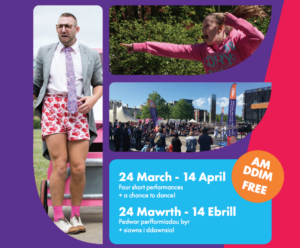
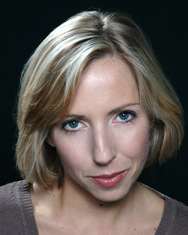






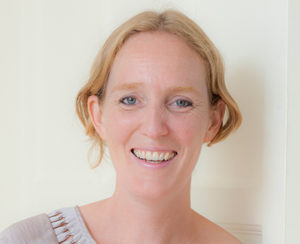


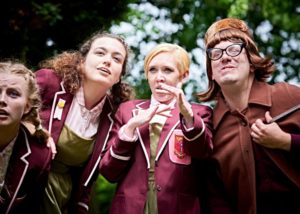
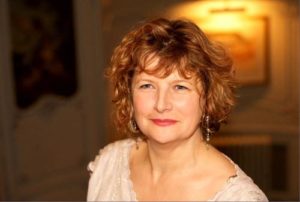
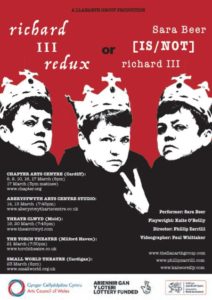







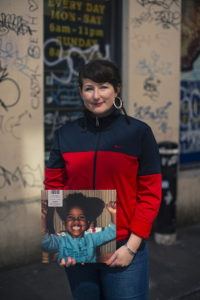

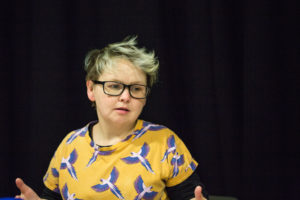


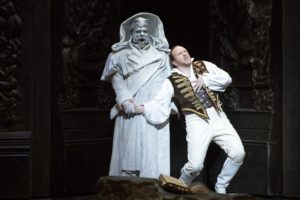
 (4 / 5)
(4 / 5)
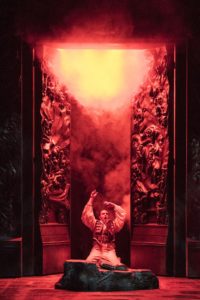
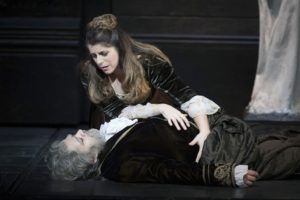
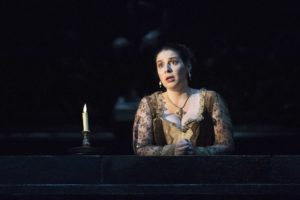
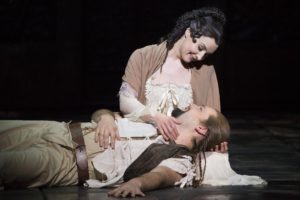
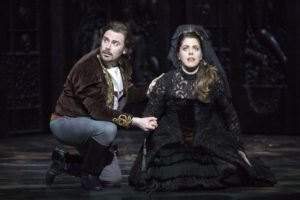
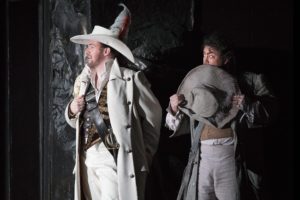

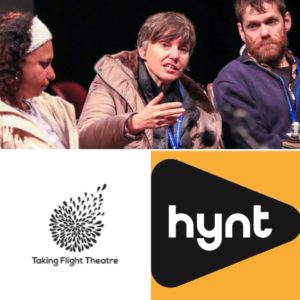

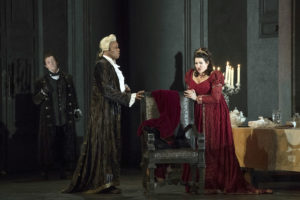
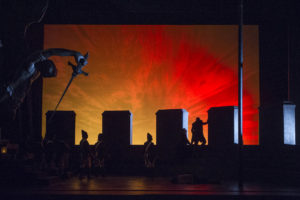
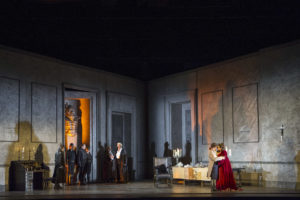
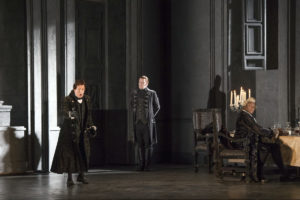
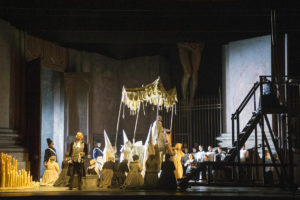
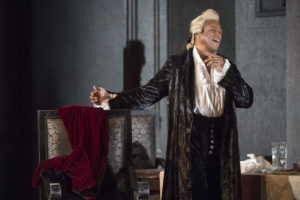
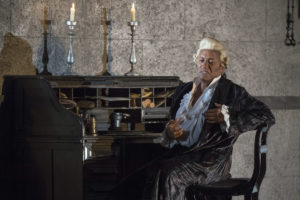

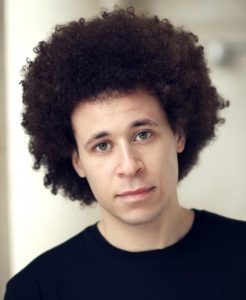



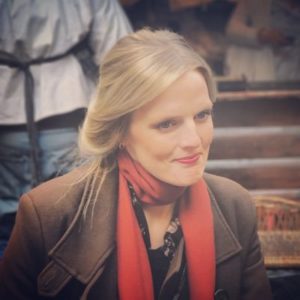

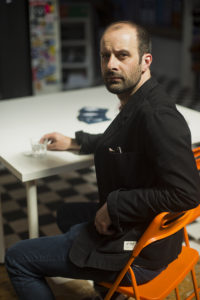





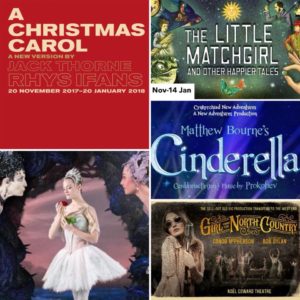
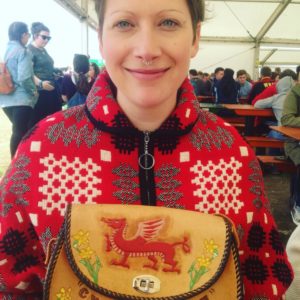





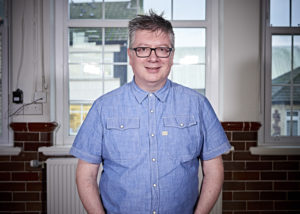

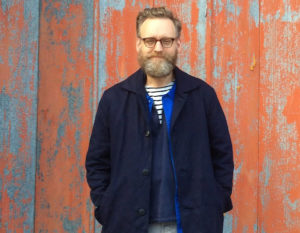


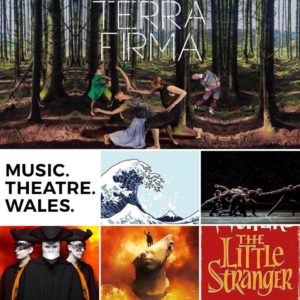
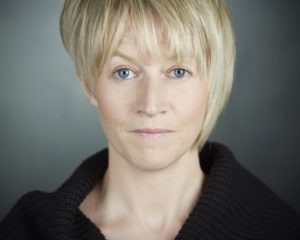

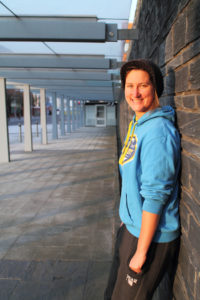


















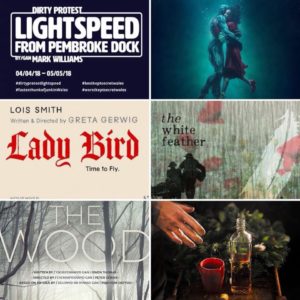
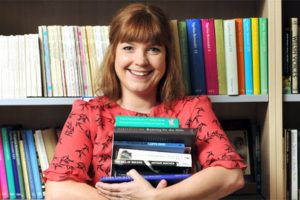





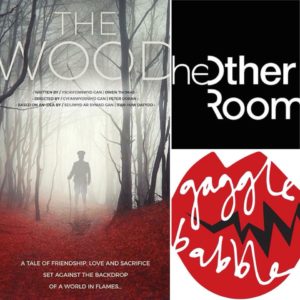



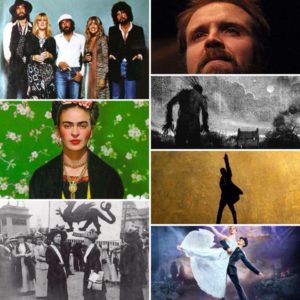
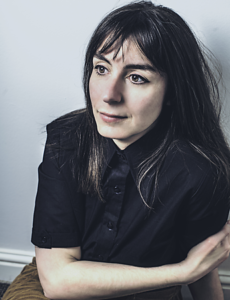
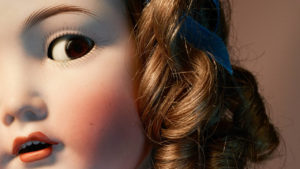





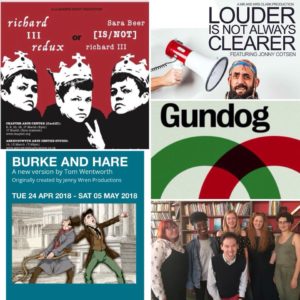




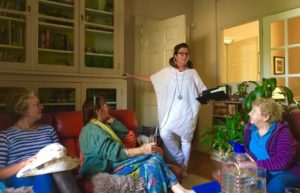



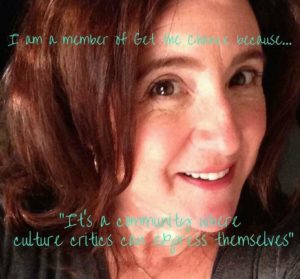

 (3 / 5)
(3 / 5)
